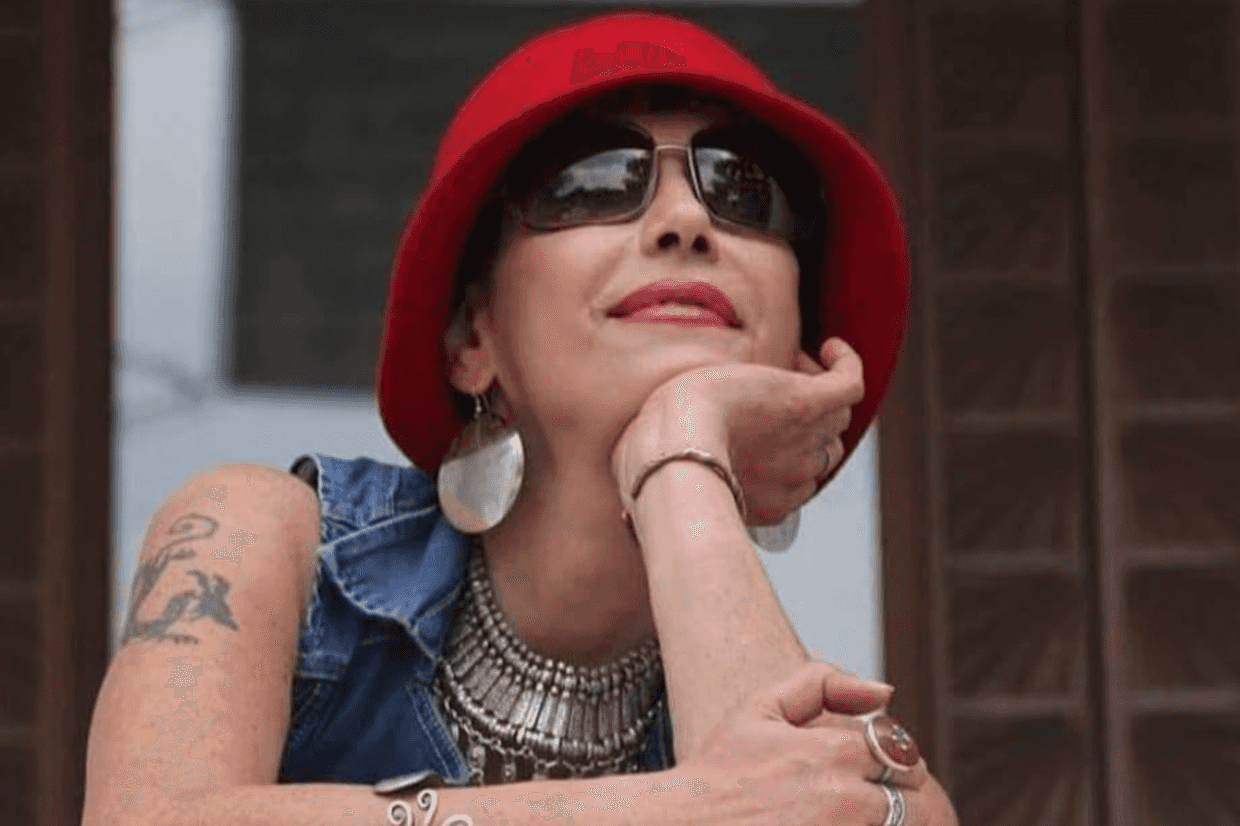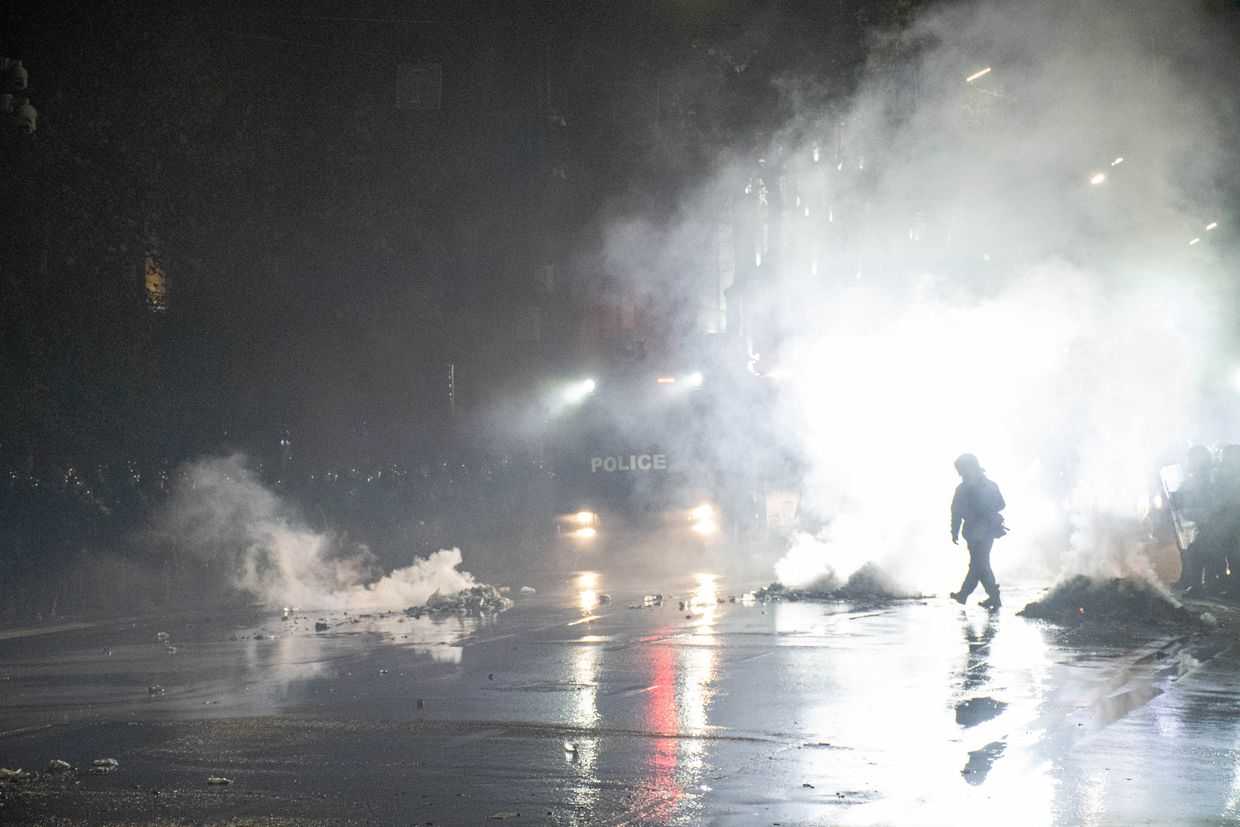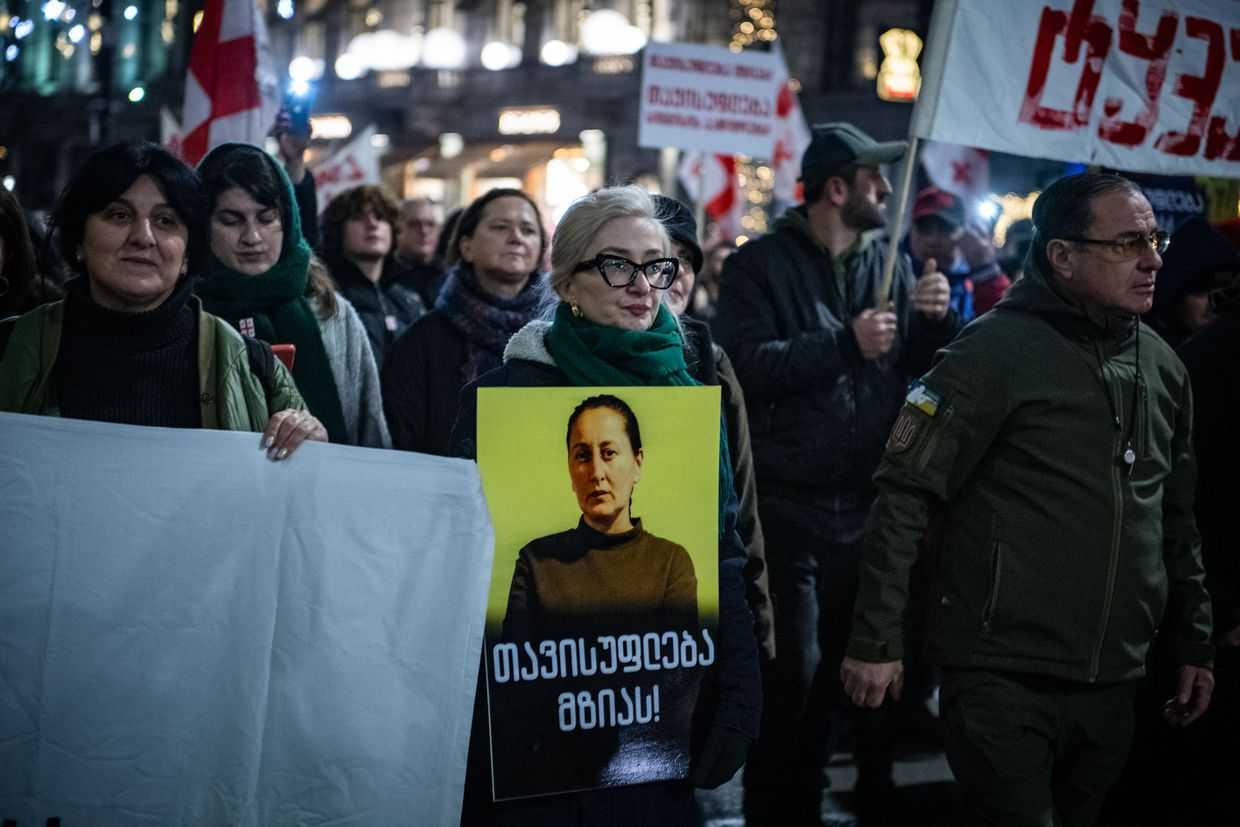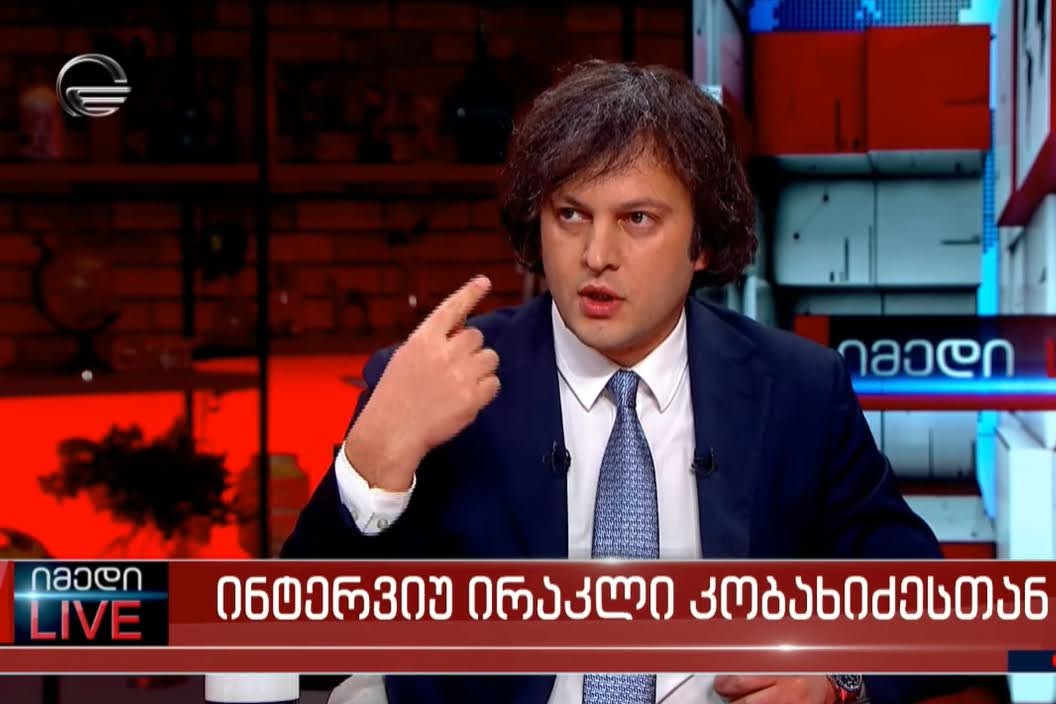
The ruling Georgian Dream party has launched attacks on several critics of the draft foreign agent laws they are pushing through parliament over their criticism of the Georgian Orthodox Church.
Speaking in defence of the laws in an interview with the pro-government TV channel Imedi on Thursday evening, the party’s chair, Irakli Kobakhidze, a close confidant of party founder Bidzina Ivanishvili, attacked individual activists, accusing them of being anti-Church.
During the interview, Kobakhidze read aloud messages critical of the Church published by several government critics on their Facebook pages.
Kobakhidze’s interview was preceded and immediately followed by a number of other proponents of the foreign agent law making similar arguments.
Hours before his interview, during a heated exchange at the parliamentary committee hearing, Georgian Dream MP Dachi Beraia called opponents of the bill ‘detractors of the church’ and ‘spies’.
Also around the same time, a number of anonymous Facebook pages not officially associated with the ruling party began running ads targeting Georgians with the same message.
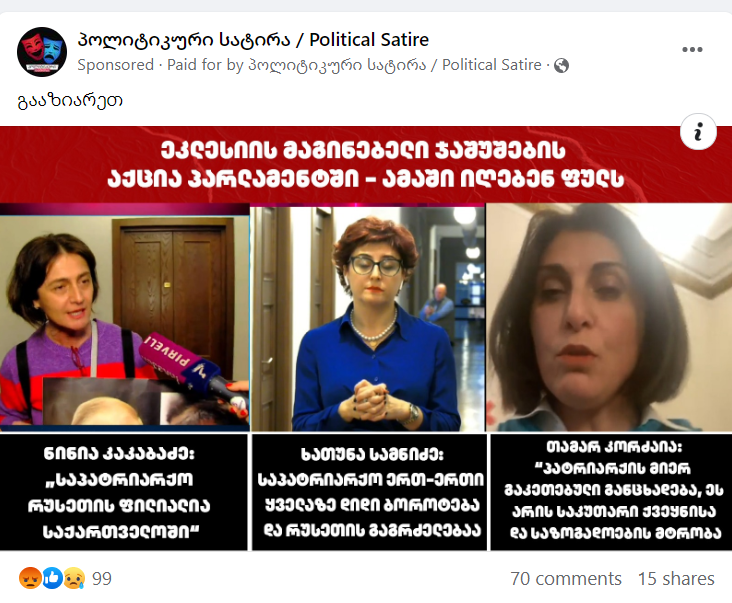
The need to protect the Church from criticism had not previously been among the arguments widely used by supporters of the draft law.
Kobakhidze also labelled the protests against the draft legislation a ‘demonstration held by detractors of the church’.
‘These people […] are directly engaged in anti-church propaganda, and they do it deliberately to weaken [Georgian] identity’, Kobakhidze alleged.
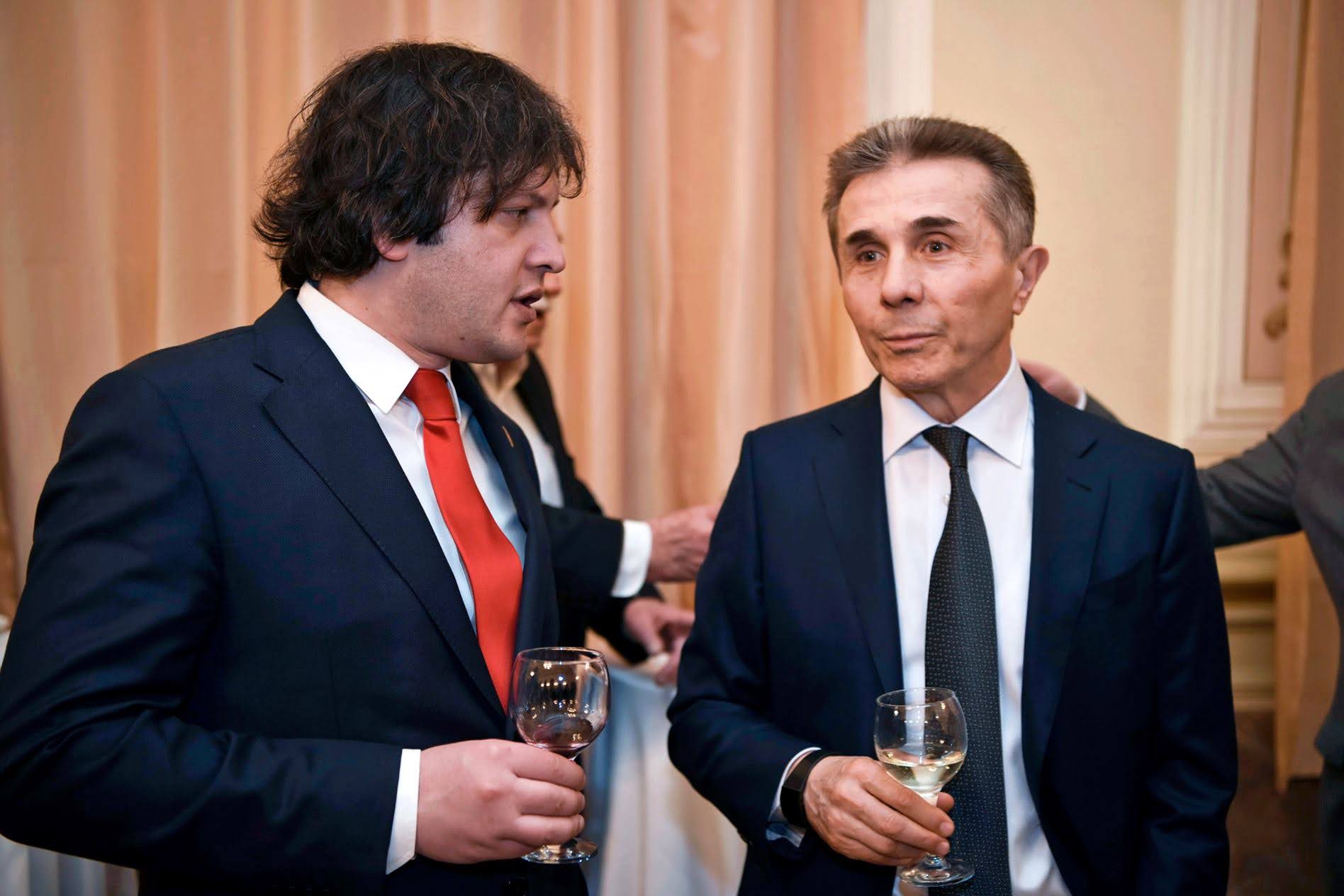
Kobakhidze gave the interview as police arrested 36 individuals during the protests against the law outside parliament on Thursday. Among those detained were several journalists who were obstructed by the parliament security and police from covering the events.
[Read more on OC Media: Georgian foreign agent law passes first committee hearing]
In the same interview, Kobakhidze questioned if critics of the proposed legislation actually constituted ‘civil society’, and contrasted government critics with famous Georgian public figures from recent history, like the 19th-century publicist, Ilia Chavchavadze.
‘They are equating [Georgian feminist leader] Baia Pataraia and Giga Makarashvili [member of the liberal group Shame] with [such figures…] this means spitting in the face of the Georgian people’, Kobakhidze complained.
Kobakhidze also repeated calls on Georgia’s Western partners to starve local groups critical of the government financially.
‘The public should know who those berating the Church are financed by’, he insisted.
The draft laws have garnered harsh criticism from a wide array of local and international groups and states, including local civil society groups, the UN, the EU, and the US.
On Thursday evening, the head of USAID, Samantha Power, called on the Georgian parliament to drop the laws. She said the laws ‘gravely threaten Georgia’s Euro-Atlantic future and the ability of Georgians to fulfil their own economic, social, and other aspirations.’
American rights watchdog Freedom House also joined the mounting calls on Georgian lawmakers to abstain from supporting the foreign agent bills.
We echo the concerns of many in the intl community that Georgia’s two draft foreign agent laws, if passed by parliament, would have a chilling effect on civil society and media. We urge Georgian authorities to reconsider these bills. https://t.co/neU19wWBo1
— Freedom House (@freedomhouse) March 2, 2023
‘Fair play rules’
During the interview, Kobakhidze admitted that Georgia was struggling with political polarisation — something the EU has called on the country to address in order to secure membership candidacy.
He nevertheless claimed that the proposed legislation would contribute to ‘de-polarisation’. Discussions of the bills escalated earlier the same day to opposition lawmakers being dragged out of the committee hearings by security.
‘Someone is financing this polarisation. Once we shed a light on all this […] some would refrain from financing polarisation. This will make us reach our goal, which is called European integration, more quickly’, Kobakhidze insisted.
The authors of the bill and their supporters, the ruling party, have several times underlined, including on Thursday, that the proposed tighter control of the media and non-governmental organisations was not aimed at Western-funded groups.
However, as in his previous interview, the chair of the Georgian Dream party made clear it was not Russian-funded groups in Georgia he was focused on.
‘When you finance extremist organisations and at the same time, demand de-polarisation, isn’t it impossible?, Kobakhidze said. ‘We demand fair play rules. Otherwise, there will be no European Union, no sovereignty, no peace.’
[Read more on OC Media: Georgian Dream hits out at ‘spies’ and Western-funded ‘extremism’]
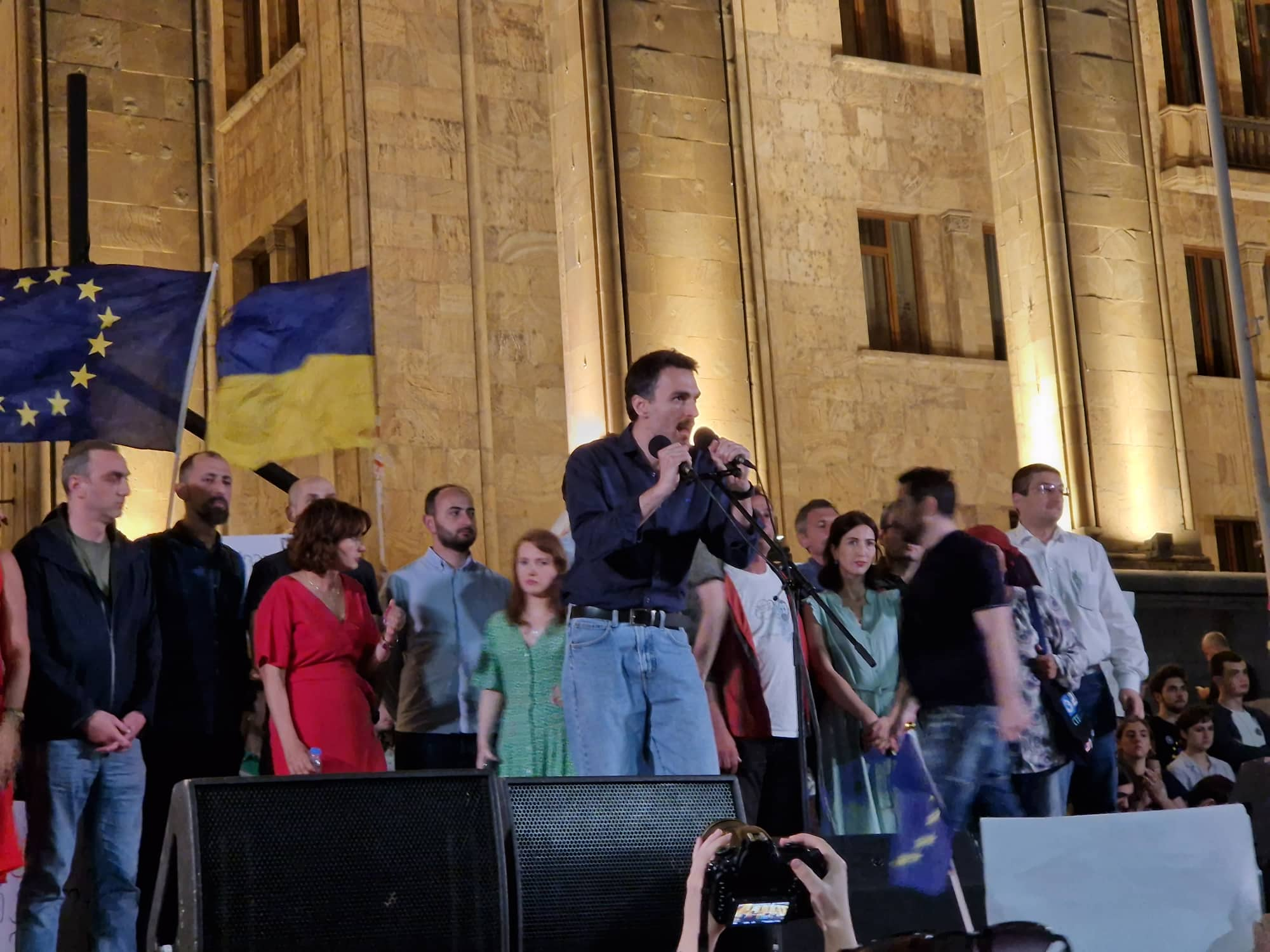
On Friday morning, several hours after Kobakhidze’s interview, Georgian Prime Minister Irakli Gharibashvili marked the anniversary of Georgia applying for EU membership. While Ukraine and Moldova were granted candidate status, Georgia’s application was rejected, with the country instead receiving 12 ‘priorities’ that they should meet before their candidacy could be granted.
The PM, another close confidant of party founder Bidzina Ivanishvili, claimed in his statement that Georgia ‘took all steps’ to achieve this goal while making no references to reforms expected by the EU from his government — including ‘de-oligarchisation’ and the protection of media freedoms and civil society.
The EU has stated that the draft laws are ‘incompatible’ with the conditions they laid out for Georgia’s candidacy to be accepted.
Journalists detained
Thursday’s hearings and the protests outside parliament also saw at least two journalists detained and others ejected from the parliament despite having accreditation to be there.
Georgia’s Charter of Journalistic Ethics, a union and journalistic self-regulatory group, and the Georgian Media Advocacy Coalition condemned the detention of Zura Vardiashvili, the director of online news site Publika, and Beka Jikurashvili, a reporter from Tabula.
Vardiashvili and Jikurashvili were released on bail later that night.
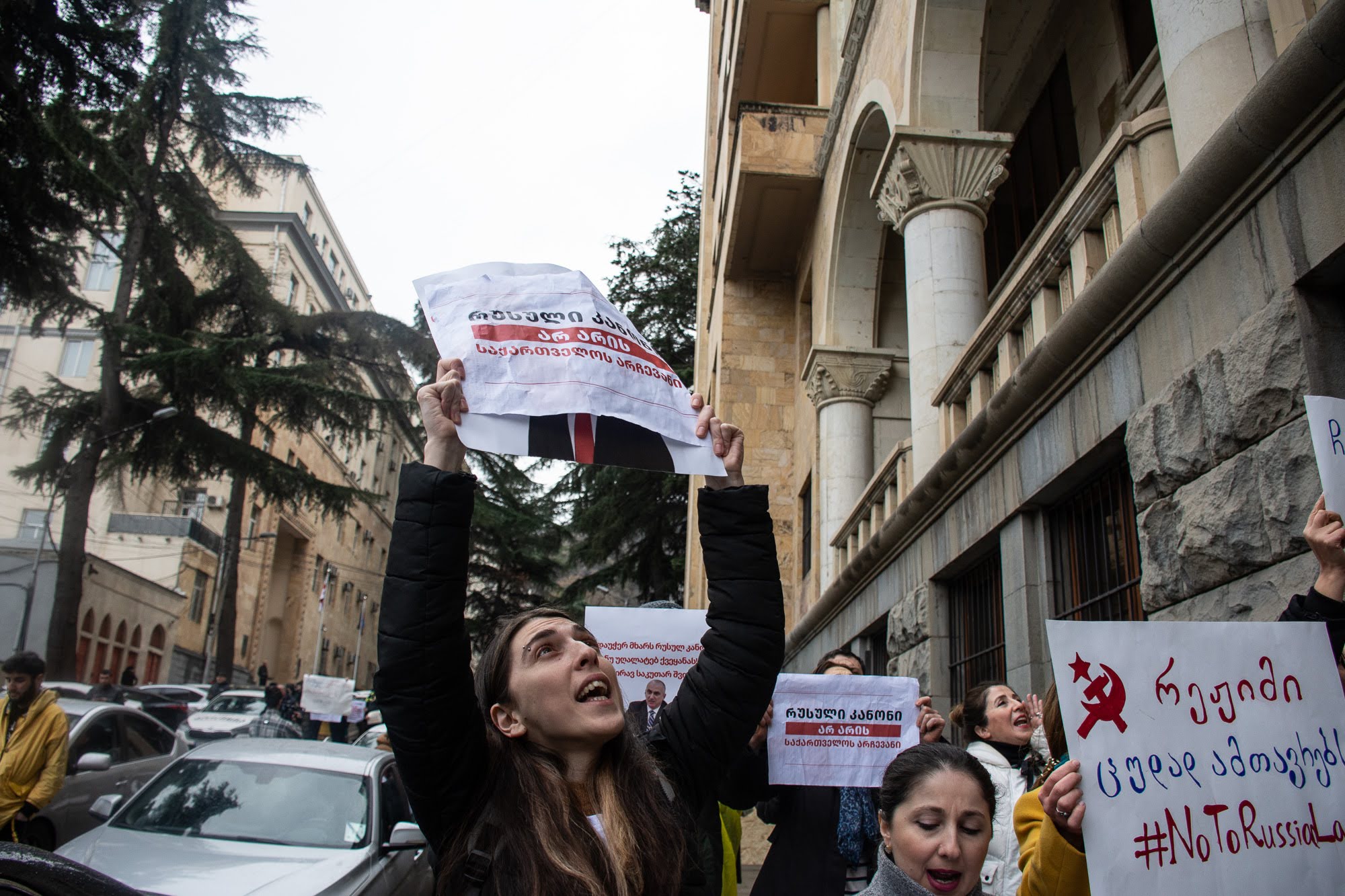
The Charter underlined that police officers did not stop detaining Vardiashvili despite others repeatedly informing them that he was a journalist.
The group also accused the Georgian parliament of obstructing journalists’ work, which is a criminal offence, after parliamentary security ejected a group of journalists who presented passes entitling them to be there.
Actions by the police were also condemned by a group of 15 Georgian rights groups, including Transparency International — Georgia and the Open Society — Georgia Foundation.
‘We would like to explicitly declare that the practice of administrative arrests and subsequent detentions is absolutely unacceptable and gravely violates fundamental human rights’, the groups said.
The Georgian Young Lawyers’ Association called on the Special Investigative Service to probe the actions of law enforcement officers for possible abuses of power against protest participants and the media.



